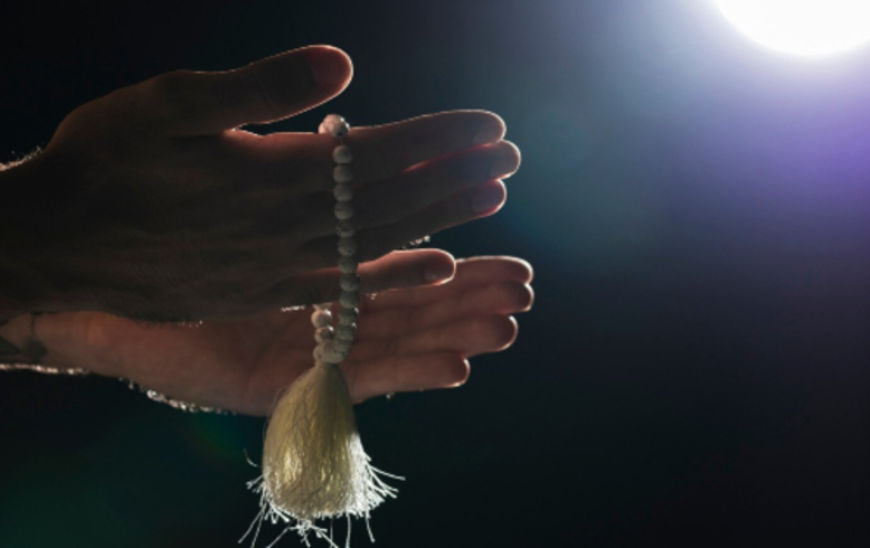
Tahajjud prayer is a special act of worship that brings a Muslim closer to Allah. It is performed during the quiet hours of the night when most people are asleep. Many Muslims strive to perform Tahajjud prayer because of its countless rewards and the deep sense of tranquility it brings. In this article, you’ll learn how to pray Tahajjud prayer properly, along with its timing, benefits, and practical tips to help you make it a regular habit.
What is Tahajjud Prayer?
Tahajjud prayer, linguistically derived from the Arabic root meaning "to abandon sleep," is a voluntary night prayer. It holds a special place among Sunnah prayers due to the numerous references to it in the Quran and Hadith.
Unlike other night prayers (Qiyam al-Lail), Tahajjud specifically refers to prayers offered after waking up from sleep. Allah mentions in the Quran:
"And during the night, pray with it as additional worship for you; it is expected that your Lord will resurrect you to a praised station." (Surah Al-Isra 17:79)
Performing Tahajjud was the regular practice of the Prophet Muhammad (PBUH), and it remains a highly recommended act for all believers.
The Benefits of Praying Tahajjud
- Spiritual Upliftment: It strengthens your relationship with Allah.
- Answered Duas: The night is one of the best times for making supplication.
- Inner Peace: Praying in the stillness of the night calms the heart and mind.
- Greater Discipline: Consistently waking up to pray builds discipline and sincerity.
The Prophet Muhammad (PBUH) said:
"The best prayer after the obligatory prayers is the night prayer." (Muslim)
By offering Tahajjud, you invite blessings, mercy, and forgiveness into your life.
When is the Best Time to Pray Tahajjud?
Tahajjud prayer can be performed after the obligatory Isha prayer and before Fajr prayer. The best time, however, is during the last third of the night, which is the most virtuous period.
To calculate it, divide the time between Maghrib and Fajr into three parts. The last third is when Allah descends to the lowest heaven and says:
"Is there anyone to ask Me so that I may grant him his request?" (Bukhari, Muslim)
Thus, praying Tahajjud during this precious time maximizes the chances of having your prayers answered.
Step-by-Step Guide: How to Pray Tahajjud
Here is a simple guide on how to perform Tahajjud prayer:
- Make the Intention (Niyyah): Before sleeping, make a sincere intention to wake up and pray Tahajjud. You don’t need to say anything verbally; the intention is in the heart.
- Sleep First (Optional): Although it’s preferable to sleep before Tahajjud (based on the Sunnah), it’s not mandatory. You can pray if you stay awake during the night.
- Wake Up in the Last Third of the Night: Set an alarm or ask someone to wake you up. This time is filled with mercy and acceptance of duas.
- Perform Wudu (Ablution): Ensure you are in a state of purity. Performing a fresh wudu renews your spiritual and physical energy.
- Start with Two Light Rakats: Begin with two short units of prayer (rakat) to get into the flow, as the Prophet (PBUH) used to do.
- Pray in Sets of Two Rakats: Pray as many rakats as you are able, two by two. You can pray 2, 4, 6, 8, 10, or even more, depending on your capacity.
- Lengthen the Recitation (Optional): If you can, recite longer portions of the Quran during Tahajjud. This increases the reward.
- End with Witr Prayer: The Witr prayer is strongly recommended after Tahajjud. It can be one, three, five, or more rakats, prayed with an odd number.
How Many Rakats for Tahajjud Prayer?
There is no fixed number of rakats for Tahajjud. The Prophet Muhammad (PBUH) often prayed eight rakats, followed by three rakats of Witr. Even two sincere rakats prayed consistently are highly beloved to Allah. Start small and gradually increase as you gain consistency.
Using a Rosary (Tasbeeh) After Tahajjud Prayer
After completing your Tahajjud prayer, you can enhance your remembrance of Allah by using a rosary (tasbeeh). A rosary helps you focus while engaging in dhikr (remembrance of Allah), such as saying:
- SubhanAllah (Glory be to Allah)
- Alhamdulillah (All praise be to Allah)
- Allahu Akbar (Allah is the Greatest)
It’s a simple yet powerful way to prolong your worship after the prayer, increase your good deeds, and feel a stronger spiritual connection. Many believers find that using a beautifully crafted rosary, such as one made from natural amber beads, makes the experience even more special and serene.
Tips to Help You Wake Up for Tahajjud Prayer
Here are some practical tips to help you wake up for Tahajjud:
- Sleep early and avoid distractions before bed.
- Make dua asking Allah to help you wake up.
- Set multiple alarms at intervals.
- Encourage family members to wake you up.
Building this habit takes time, but the spiritual benefits are priceless. Tahajjud prayer is a gateway to a deeper, more meaningful relationship with Allah. By praying in the stillness of the night, you unlock blessings, forgiveness, and peace that few other acts of worship can offer. Start with just two rakats, make a heartfelt dua, and feel your soul blossom in the night’s serenity.
Remember, Allah loves those who make the effort to seek Him during the quiet moments when the world is asleep.
.jpg)




 Jewelry
Jewelry Silver amber jewelry
Silver amber jewelry Amber pictures
Amber pictures Souvenirs
Souvenirs